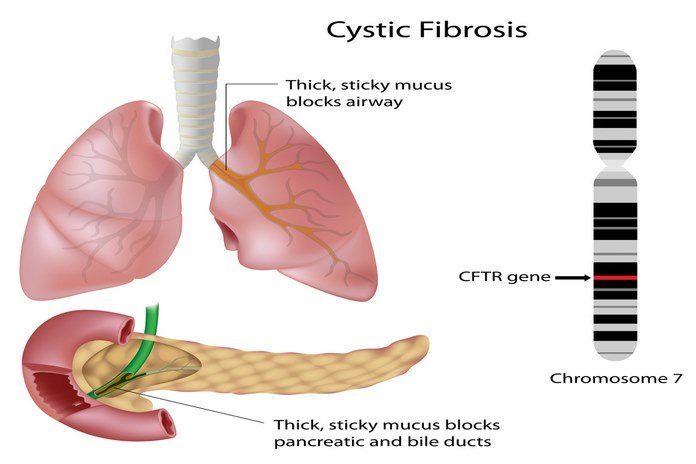Cystic fibrosis is a genetic disorder and inherited disease that affects the lungs and numerous other organs. This disease causes the body to produce thick, viscous mucus that can obstruct the airways, making it extremely difficult to breathe. Normally, the mucus produced by the body is thin and slippery, but when a person has this disease, the mucus becomes viscous, sticky, and glue-like. This viscous mucus obstructs the tubes and accumulates within the airways. It causes a persistent pulmonary infection and restricts breathing. Mucus promotes infection by entrapping pathogens.

It hinders the enzyme’s ability to correctly digest food and interferes with pancreatic function. Additionally, the viscous mucus can harm the lungs and be life-threatening. This disease can also result in complications such as diabetes and liver disease. Each year, 1,000 new cases of cystic fibrosis are diagnosed in the United States. The leading cause of patient mortality is respiratory failure.
